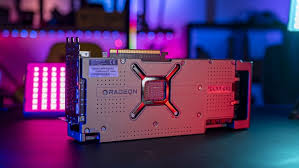Introduction
Overheating issues in graphics cards can lead to serious performance problems and even damage to the hardware. Recently, reports have emerged regarding the RX 7900 XTX GPU from AMD, suggesting that it may be prone to overheating. This article will delve into the details of these reports, explore the potential causes of the overheating, and discuss the implications for AMD.
The RX 7900 XTX GPU and Its Vapor Chamber
The RX 7900 XTX is AMD’s flagship GPU, boasting impressive performance and capabilities. However, users have started experiencing high hotspot temperatures, reaching up to 110C, which is a cause for concern. Tom’s Hardware reported that overclocking expert Der8auer conducted tests on four RX 7900 XTX graphics cards with the reference design and found that mounting the card vertically resulted in slightly lower temperatures. However, even vertically mounted cards still experienced high hotspot temperatures.
Investigating the Root Cause
Der8auer investigated various theories to determine the root cause of the overheating. He considered factors such as the weight of the cooler, mounting pressure, and the quality of the thermal paste. After extensive testing, he concluded that the vapor chamber could be the primary culprit. The pressure inside the vapor chamber might be incorrect, or there could be an issue with the amount of liquid used. However, this is still an assumption, and further investigation is required.
Potential Implications for AMD
The overheating issues with the RX 7900 XTX GPU have raised concerns about the overall quality and reliability of AMD’s flagship graphics card. Der8auer, along with experts from Igor’s Lab and a vapor chamber manufacturer, suggested that AMD may need to recall affected models with the reference design and cooler. This recalls memories of Nvidia’s RTX 4090 cable melting crisis, but the number of reported overheating cases with the RX 7900 XTX seems to be higher.
AMD’s Response and Support
AMD has acknowledged the reports of overheating and is currently investigating the matter. In a statement, they mentioned that thermal throttling may occur, reducing clock rates but ensuring the card can still be used. Affected users were advised to contact AMD support, although the e-ticket system for support was temporarily down for maintenance. This response has faced criticism from the community, who have expressed dissatisfaction with the limited support options available.
The Comparison to Nvidia’s Issues
The comparison between AMD’s RX 7900 XTX overheating issues and Nvidia’s melting adapter problem with the RTX 4090 is noteworthy. While Nvidia had around 50 reported incidents, AMD’s overheating flaw seems to have a higher number of reports. Der8auer suggests that due to the magnitude of the issue, AMD might not be able to rely solely on the RMA process and could potentially need to recall the affected RX 7900 XTX models.
Further Investigations and Future Developments
To gain a clearer understanding of the situation, more extensive investigations are required. It is crucial for AMD to identify the root cause of the overheating and provide a solution to affected users. The company’s response and how they handle this situation will determine the impact on their reputation and the market perception of their products.
Conclusion
The reports of RX 7900 XTX GPU overheating issues have raised concerns about the reliability and performance of AMD’s flagship graphics card. While investigations are ongoing and no definitive conclusions can be drawn yet, the potential implications for AMD are significant. It remains to be seen how the company will address these issues and provide support to affected users. As the situation unfolds, it is essential for users and enthusiasts to stay informed and monitor any updates from AMD regarding the RX 7900 XTX GPU overheating issues.



No comments! Be the first commenter?